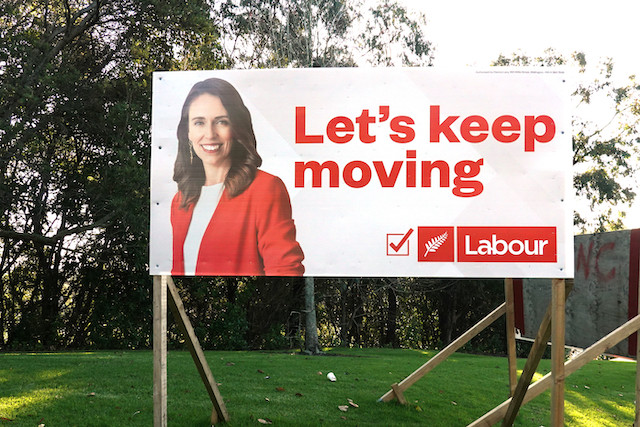Jacinda Ardern’s party won 49% of the vote, the first time this has happened since New Zealand introduced a mixed member proportional electoral system in 1996. It was also the biggest share of the vote secured by the party in over 70 years.
Co-chair of the Australia and New Zealand Chamber of Commerce in Luxembourg Tony Whiteman credits the victory to the “positive aura the leader has generated through the way she has handled this crisis.”
“She’s a very positive young woman and she was one of the first prime ministers to have a baby while sitting. She had global exposure for these reasons and she’s translated that into having a feel good factor in New Zealand,” he told Delano on Monday.

Tony Whiteman is pictured at the launch of the Australia New Zealand Chamber of Commerce in Luxembourg in 2019. Photo: LaLa La Photo
Whiteman said that while continents apart, the Luxembourg and New Zealand shared a similar inclusive outlook. When creating the chamber in 2019, the two respective prime minister held talks together in Davos.
Since the last elections, Ardern has steered the Labour-NZ First-Green coalition government through some major catastrophes, notably the Christchurch shooting, the White Island eruption and, most recently, the global health pandemic. As part of efforts to quash covid infections in New Zealand, the country has dramatically restricted travel onto the territory, including limiting foreign students and tourists. Nationals entering the country for valid reasons must quarantine for 14 days.
As a result of the pandemic and subsequent containment measures, in the June quarter GDP per capita fell 12% and the economy is expected to contract 5.6% overall in 2020.
“On the ground in New Zealand they have been hurting,” Whiteman said. “There are things to manage. With a strong mandate like that you can look forward, which is positive.”
With a parliamentary majority, Ardern is expected to deliver on her promise of progressive transformation, which she failed to achieve under the coalition. "Will it change anything? Only to the positive, I would have thought, having a strong government and a strong leader," says Whiteman.
In terms of Luxembourg and EU relations, the government will also work to put in place a free trade agreement with Europe. Other pressing domestic challenges include tackling child poverty and the housing deficit, says Whiteman.
In total, five parties gained seats in the New Zealand parliament: Labour (64 seats), the National Party (35 seats), the Green Party (10 seats), ACT New Zealand (10 seats) and the Maori Party (1 seat)
